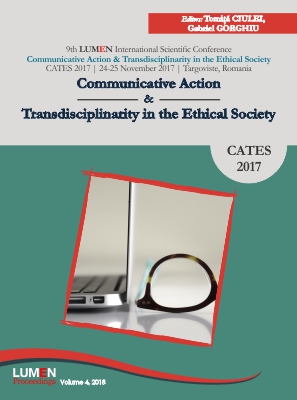The Preliminary Chamber Competence in the Light of Articles 342-347 of the C.C.P. Provisions
The Preliminary Chamber Competence in the Light of Articles 342-347 of the C.C.P. Provisions
Author(s): Denisa Barbu
Subject(s): Essay|Book Review |Scientific Life
Published by: Editura Lumen, Asociatia Lumen
Keywords: Preliminary Chamber; the return of the case; the commencement of the trial; the irregularity of the notice; the lawfulness of the administration of the evidence
Summary/Abstract: The current Code of Criminal Procedure brings important changes to some of the institutions of the old Code of Criminal Procedure, but it also establishes a number of new institutions that did not exist in our criminal law.Based on these considerations, we have appreciated that at this time, in view of the consolidation of the legislation in the field, it is useful to design a work that examines the competence of the preliminary chamber judge. Therefore, the ways in which the claims and exceptions relating to the legality and loyalty of the prosecution are evaluated in this stage of the trial to know who the right holders are entitled to formulate / invoke claims and exceptions will be analysed; the date until which they can be formulated; the subject of criticisms that may be brought to prosecution; the cases in which the case is returned to the prosecutor’s office or the cases in which the opening of the court is ordered.Even if the Preliminary Chamber judge does not verify the merits of the evidence or the trial, its role is as important as the role of the court, since its rulings on the lawfulness of the prosecution can have a significant reflex on the settlement of the criminal proceedings, given that the basis of any criminal proceedings is the probation.It should be noted that, in addition to proceedings in the preliminary camera stage, the Criminal Procedure Code confers on the judge of preliminary proceedings and derived competences in the matter of disposal of special confiscation, the total or partial dissolution of a document after the prosecutor has ordered a non-adjudication confirmation / refusal to reopen the criminal prosecution or to settle the complaint against the classification solutions, respectively the verification of the lawfulness and the soundness of the decision to renounce the criminal prosecution, but the legislator established its own procedural rules, the provisions of art. 342-347 C.C.P. not establishing the common law on them.
Book: Communicative Action & Transdisciplinarity in the Ethical Society
- Page Range: 38-44
- Page Count: 7
- Publication Year: 2017
- Language: English
- Content File-PDF

